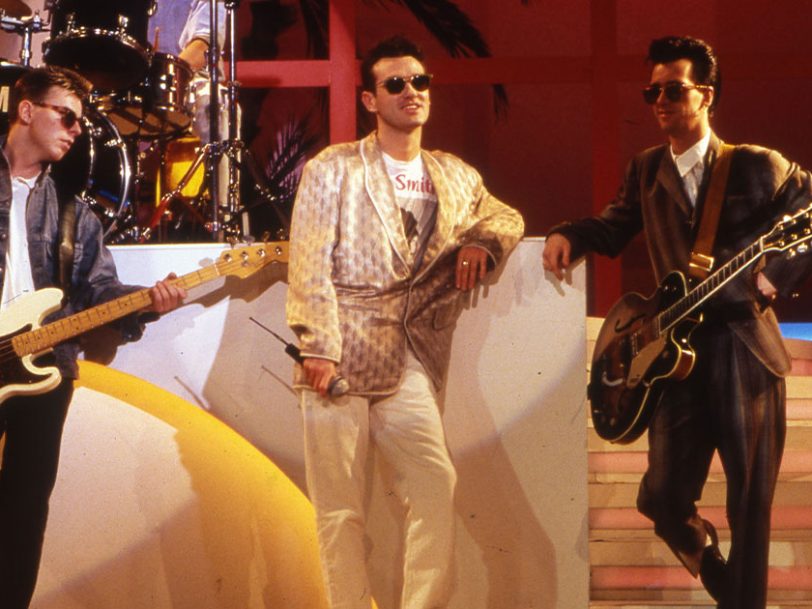The juxtapositions made for a startling end result, with Tony Fletcher later noting that the music proffered a “lightness” that was “at deliberate odds with the cruelly hilarious lyrics, which offered an extreme take on the ancient pop culture of songs such as [Ricky Valance’s] Tell Laura I Love Her and [The Shangri-Las’] The Leader Of The Pack”. Indeed, just to ram the point home, Morrissey even quoted the title of another mid-60s classic, The Four Seasons’ Bye, Bye, Baby (Baby Goodbye), at the end of Girlfriend In A Coma’s second chorus.
The release: “You’re not really supposed to like those songs”
Collectively, the band members’ efforts ensured that Girlfriend In A Coma became one of The Smiths’ most satisfying singles – and also one of their most succinct, as the song barely broke the two-minute mark. It was, however, long enough for the BBC to take umbrage over Morrissey’s lyrics. Having deemed a song about a (possibly terminal) hospital-bound lover unsuitable for widespread airplay, the broadcasting corporation duly slapped a ban on it – though that came as no surprise to the group.
“You’re not really supposed to like those songs,” Morrissey reflected, during an interview with The Independent in 2006. “They’re very depressing and not supposed to be played on radio.”
However, The Smiths were big news in 1987, so Girlfriend In A Coma’s success was scarcely reliant upon airplay. Indeed, even without the BBC’s support, the song – which was released on 10 August 1987, as the first of three singles lifted from Strangeways, Here We Come – charted effortlessly, peaking at No.13 in the UK.
The legacy: “I’m always surprised by how good it sounds”
For a song that places the emphasis on brevity, Girlfriend In A Coma has lasted well, too, with the likes of Consequence (“there’s something so appealing about how Marr’s upbeat composition clashes with the blacker-than-black comedy of Morrissey’s lyrics”) and Guitar magazine (a “hooky little acoustic earworm that sticks in our grey matter the longest”) being just two of the numerous publications that have cited the song’s enduring quality in recent years. But then, The Smiths themselves always knew they were into something good with this particular song.
“Accepted opinion says [The Queen Is Dead] is our masterpiece… but Strangeways has its moments,” Johnny Marr told Select in 1993. “Over the last few years I’ve heard Girlfriend In A Coma in shops and people’s cars, and I’m always surprised by how good it sounds.”




